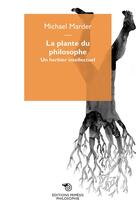-
Date de parution : 03/05/2022
-
Editeur :
Mit Press
-
EAN : 9780262543712
-
Série :
(-)
-
Support :
Papier
-
Nombre de pages : 240
-
Collection :
(-)
-
Genre :
Religion
-
Thème :
Religion
-
Prix littéraire(s) :
(-)
Résumé:
B>A philosophical guide to passengerhood, with reflections on time, space, existence, boredom, our sense of self, and our sense of senses./b>br>br>While there are entire bookstore sections--and even entire bookstores--devoted to travel, there have been few books on the universal experience of... Voir plus
B>A philosophical guide to passengerhood, with reflections on time, space, existence, boredom, our sense of self, and our sense of senses./b>br>br>While there are entire bookstore sections--and even entire bookstores--devoted to travel, there have been few books on the universal experience of being a passenger. With this book, philosopher Michael Marder fills the gap, offering a philosophical guide to passengerhood. He takes readers from ticketing and preboarding (preface and introduction) through a series of stops and detours (reflections on topics including time, space, existence, boredom, our sense of self, and our sense of senses) to destination and disembarking (conclusion).;br>;br>Marder finds that the experience of passengers in the twenty-first century is experience itself, stretching well beyond railroad tracks and airplane flight patterns. On his journey through passengerhood, he considers, among many other things, passenger togetherness, which goes hand in hand with passenger loneliness; flyover country and the idea of placeness; and Descartes in an airplane seat. He tells us that the word metaphor means transport in Greek and discusses the gray area between literalness and metaphoricity; explains the connection between reading and riding; and ponders the difference between destination and destiny. Finally, a Beckettian disembarking: you might not be able to disembark, yet you must disembark. After the voyage in the world ends, the journey of understanding begins.
Donner votre avis















